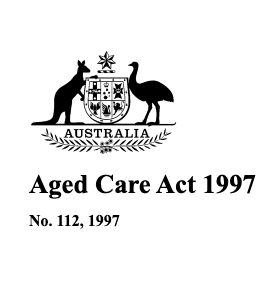Two years ago, the Prime Minister announced a royal commission into aged care. This announcement came on the eve of ABC Four Corners’ two-part investigation into the failings in aged care. “Government by media” had replaced careful consideration of the evidence.
Before jumping into another expensive royal commission, it would have been prudent for Scott Morrison to review the evidence from the numerous inquiries that both Coalition and Labor governments had initiated over the past two decades. Submissions to these inquiries provided evidence of inadequate personal care, negligence, neglect, abuse and assault in aged care homes.
However, the royal commission enabled older people and families to tell their stories. A 105-year-old woman living in an aged care home was the oldest witness to give evidence. Hearing firsthand accounts has illustrated the failures in the aged care system.
The royal commission also released 20 research papers. This research will enable an evidence-based approach to aged care policy. For far too long, aged care policy has been based on opinion.
On February 26, the commissioners will release their final report. The counsel assisting’s 124 recommendations provide a glimmer of hope that the final report will outline a plan to fix aged care. But will the government act on the recommendations?
During an interview on ABC 7.30 on February 2, Aged Care Minister Richard Colbeck said the government will respond to the commissioners’ recommendation “in the budget”, seemingly signalling that the answer to all the problems is to throw more money at it.
The government should not give any more money to aged care providers without fundamental reform of the system. Already there is too little transparency about how providers spend the $21 billion in government subsidies they receive each year. The public has no way of knowing whether providers spend the government subsidies to provide personal care, meals and activities for residents or on PR consultants to rebrand their image.
Last year, in the middle of the biggest reputational disaster to hit privately run aged care, with the preventable deaths of 685 residents, six provider peak bodies engaged a public relation company, Apollo Communications, to launch a campaign to “change the conversation” about aged care and “win the hearts and minds of middle Australia”. Last week, these same provider peaks released a petition titled: It’s time to care about aged care. How many people have signed this petition not realising they are supporting some of the most profitable providers in the aged care industry?
To achieve meaningful and sustainable improvements in the aged care system, we need a new Aged Care Act that focuses on the human rights of older people, not the profits of providers. The only way to ensure higher standards of care is for the government to go back to the drawing board and rewrite the Aged Care Act from scratch.
One of the most common complaints heard during the royal commission is that aged care homes do not employ enough staff. The royal commissioners must recommend staffing models that are evidence-based rather than opinion-based.
The aged care sector also needs improved regulation. How is it possible that two brothers banned from the poultry industry for 17 years, after starving more than a million chickens, were given an aged care licence, despite being bankrupt at the time and having no experience?
To translate the recommendations into action, the government must stop listening only to provider peak bodies. They are part of the broken system. As Einstein once said: “We cannot solve our problems with the same thinking we used when we created them.”
It is only by working together – with older people, families, staff, providers, peak bodies, advocates, unions, academics, health bureaucrats, and politicians – that older people in Australia will receive the care and support they need.
First published in The Age on 23 February 23 2021
